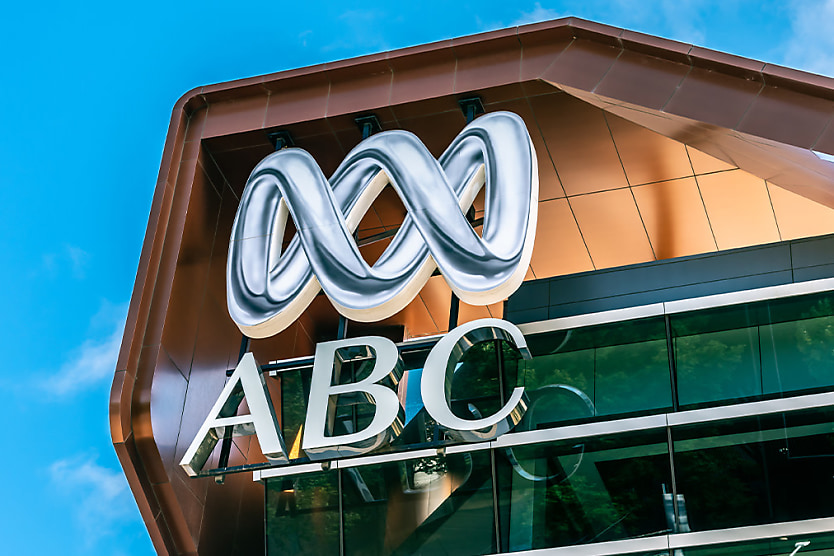ABC claims campaign against Lattouf was not linked to firing
SHARE THIS ARTICLE

In opening submissions, counsel for the ABC has distanced Antoinette Lattouf’s termination from the campaigning by a “pro-Israel lobbyist” group to have her fired.
ABC’s managing director, David Anderson, searched Antoinette Lattouf’s Instagram and cautioned her against controversial posts because of complaints received from a pro-Israel group – but the ABC argued this was where their involvement in her sacking ended.
As part of her unlawful termination proceedings, Lattouf argued she was pushed out after this group had “openly and frankly targeted her because of her opinions” on the conflict in Gaza. She alleged the ABC, agreeing she held this “political opinion”, pushed her out.
During opening submissions, her counsel, Oshie Fagir, said the group was “coordinated” and advanced the theory that Lattouf’s expression of her opinions about the Gaza conflict “meant she was not impartial”.
He added the group were “spectacularly successful in driving her off the air [of Sydney Morning’s] and out of the public broadcaster”.
In opening submissions for the ABC on the morning of 5 February, Ian Neil SC said that while a decision to investigate Lattouf’s social media may have stemmed from receiving the group’s complaints, her firing came about because of a separate decision in the days later.
Based on the complaints, Neil claimed the leadership team – including Anderson, chief content officer Chris Oliver-Taylor, and head of audio content Ben Latimer – had concluded Lattouf should remain on the air for the remainder of her week-long engagement.
The decision to sack Lattouf came after she posted a Human Rights Watch report about the Israeli government using starvation as a “tool of war”. ABC alleged she breached a direction to ensure she would not post anything controversial on her social media accounts.
As part of his opening, Neil took the court through what he said was the correct timeline of events, which he claimed would demonstrate the ABC was concerned only with reputational damage.
On the night of 18 December 2019 – the day before the Human Rights Watch post was published on Lattouf’s Instagram – Anderson sent a message to Oliver-Taylor about the “reputational issue” her social media and the group’s campaign posed to the ABC.
“The perception of our people’s impartiality is as important as their adherence to the [editorial policies],” Anderson said.
The next morning, Latimer directed then-head of capital city networks – operating under ABC Radio – Steve Ahern to direct Lattouf not to “post anything on her social media”.
Neil claimed there was a discussion about Lattouf keeping a low profile, “for her own protection as much as anything else, given the campaign against her appears to be growing”. The overall decision was that Lattouf would remain on, allegedly under that direction.
A further conversation with Lattouf and her superior, Elizabeth Green, affirmed this direction, according to the ABC.
It is the ABC’s case that Anderson’s comments to Ita Buttrose, former chair of the ABC, about the decision to keep her on proved the group had no bearing on the decision to sack her on 20 December. It also demonstrated ABC’s focus was on its reputation, Neil said.
In an email to Buttrose on 20 December, Anderson blamed Ahern for Lattouf’s hiring and claimed he was “negligent” in making the decision to hire her without first checking her social media activity.
“Where in any of this does one see any trace, even a bat squeak, of antipathy on the part of Anderson, Oliver-Taylor, Buttrose, anyone who looked at this, to the actual content of any opinions that Lattouf might have had,” Neil said.
“Their whole focus was on reputational damage to the ABC.”
Lattouf counsel hints at double standard
Nearing the end of the day’s hearing, Anderson was in the witness box to answer questions asked by Fagir, including whether there was a rule that governed an ABC journalist’s social media use.
Anderson said employee guidelines prevent staff from undermining their ability to be effective at work and bringing the ABC into disrepute. He said that when this may have happened in the past, it has been “brought to the attention of the ABC … and looked into”.
“Some have been sanctioned, some have not, depending on the situation,” Anderson told the court.
Fagir then took him to several examples of public statements that may be perceived as contentious, including a post about Australia’s racist history made by 7.30 host Laura Tingle and regular comments by Q&A host Patricia Karvelas about the apparent “hit job” on ABC journalists by some rivals within News Corporation.
Anderson was also referred to a public post by John Lyons, global affairs editor, about ABC “bowing” to pressure from the pro-Israel lobbyists who “succeeded” in having Lattouf pushed out.
Asked whether each of these statements might reasonably be perceived as not impartial, Anderson agreed.
Then asked whether a statement about the killing of journalists by a sovereign power – made by Lattouf on a number of occasions – could also be regarded as not impartial, Anderson again answered yes.
Finally, Fagir asked whether Tingle, Karvelas, or Lyons had ever been sanctioned or removed from air for their public statements.
“No,” Anderson said in response.
The proceedings are continuing.
RELATED TERMS
When a company terminates an employee's job for improper or illegitimate reasons, it is known as an unfair dismissal.
